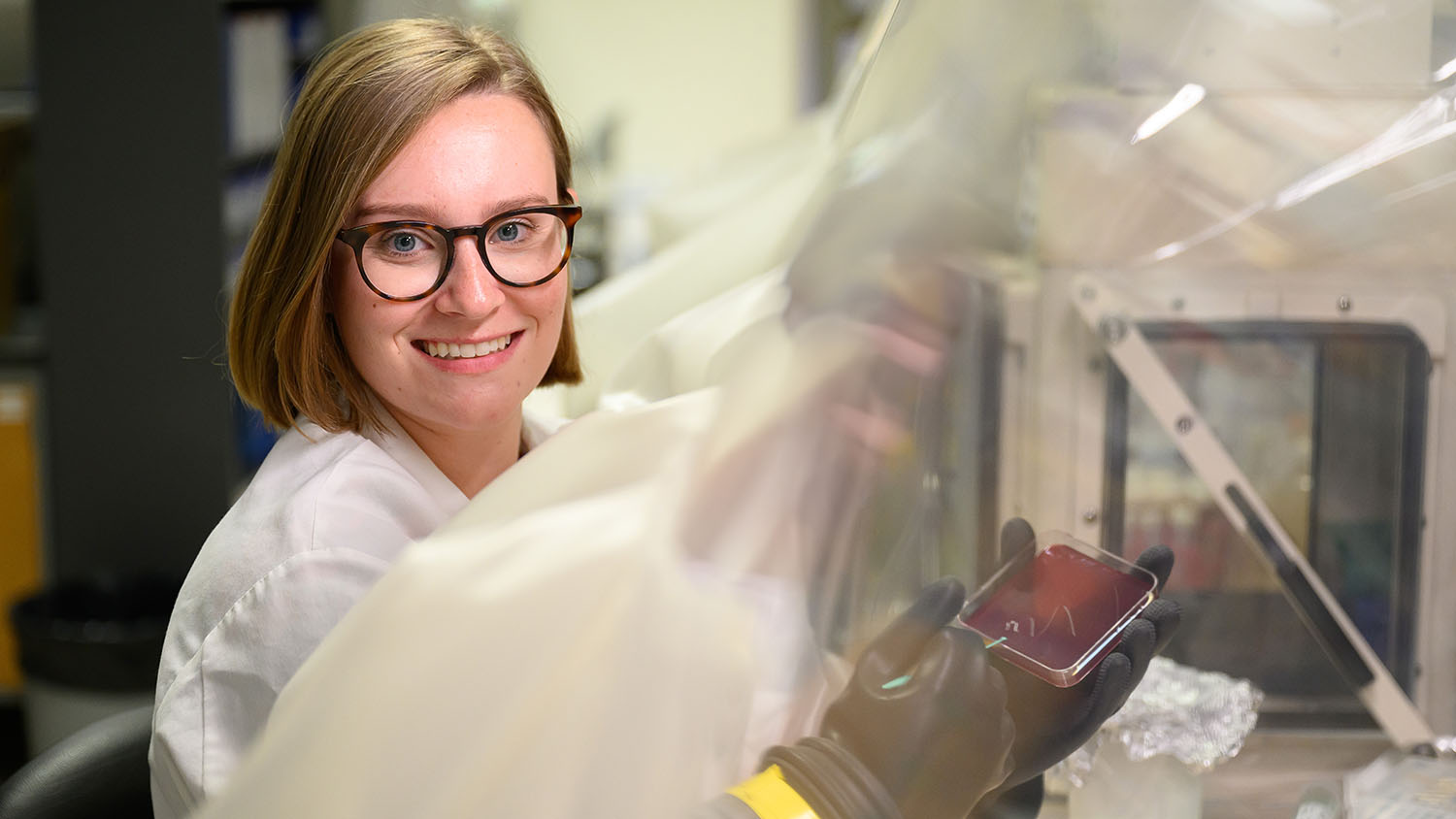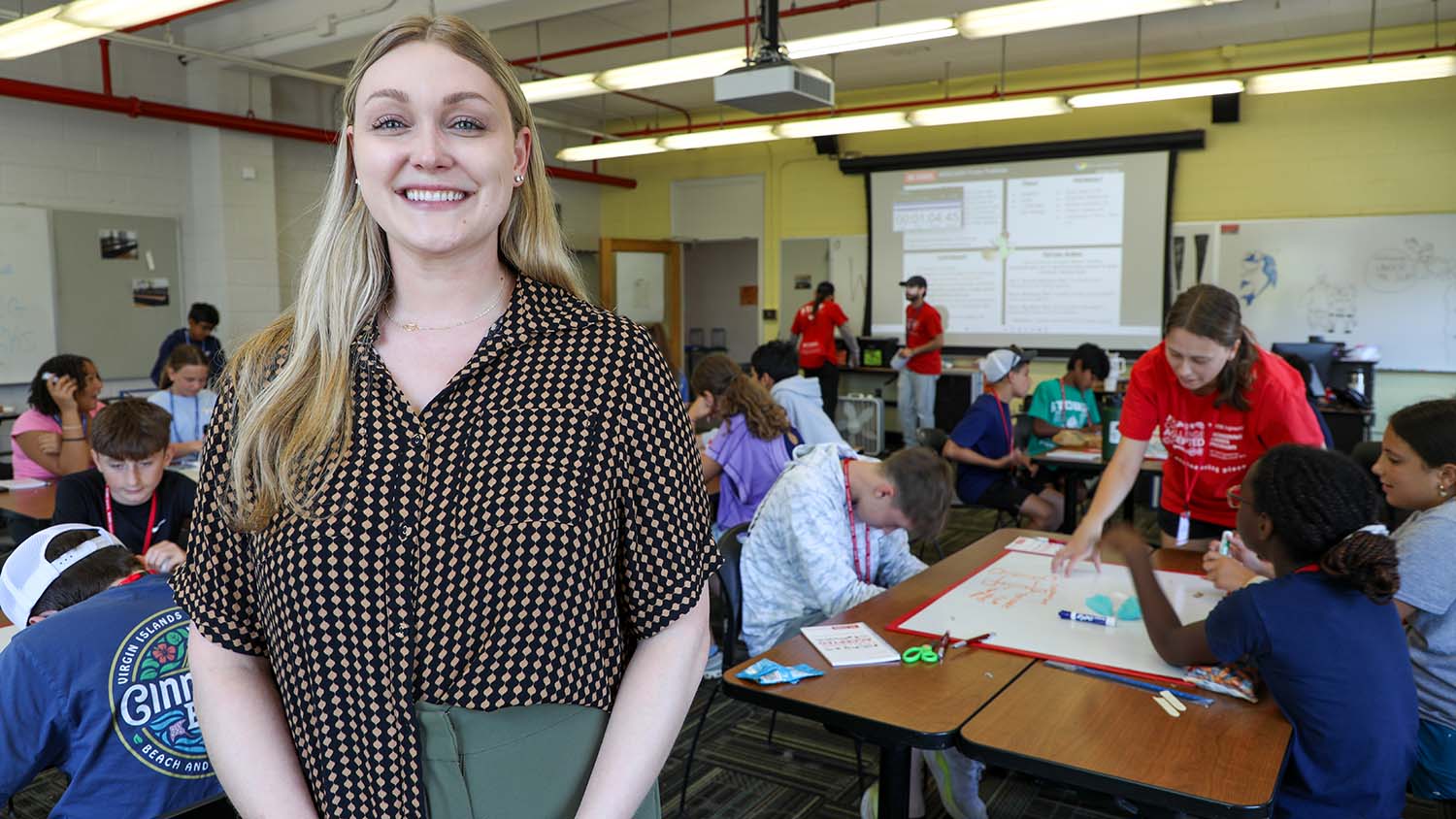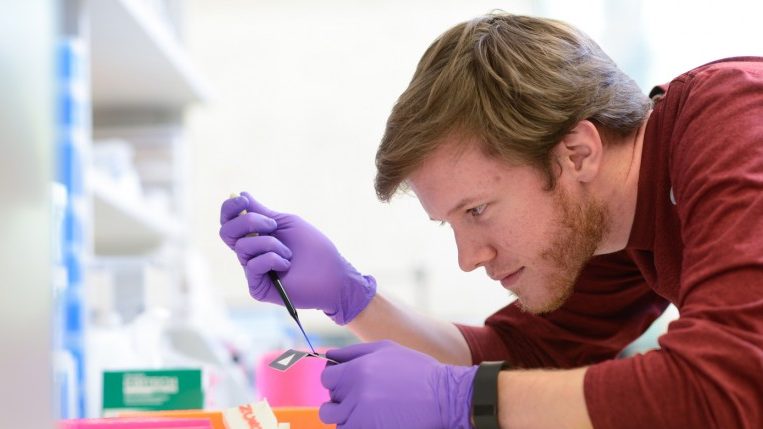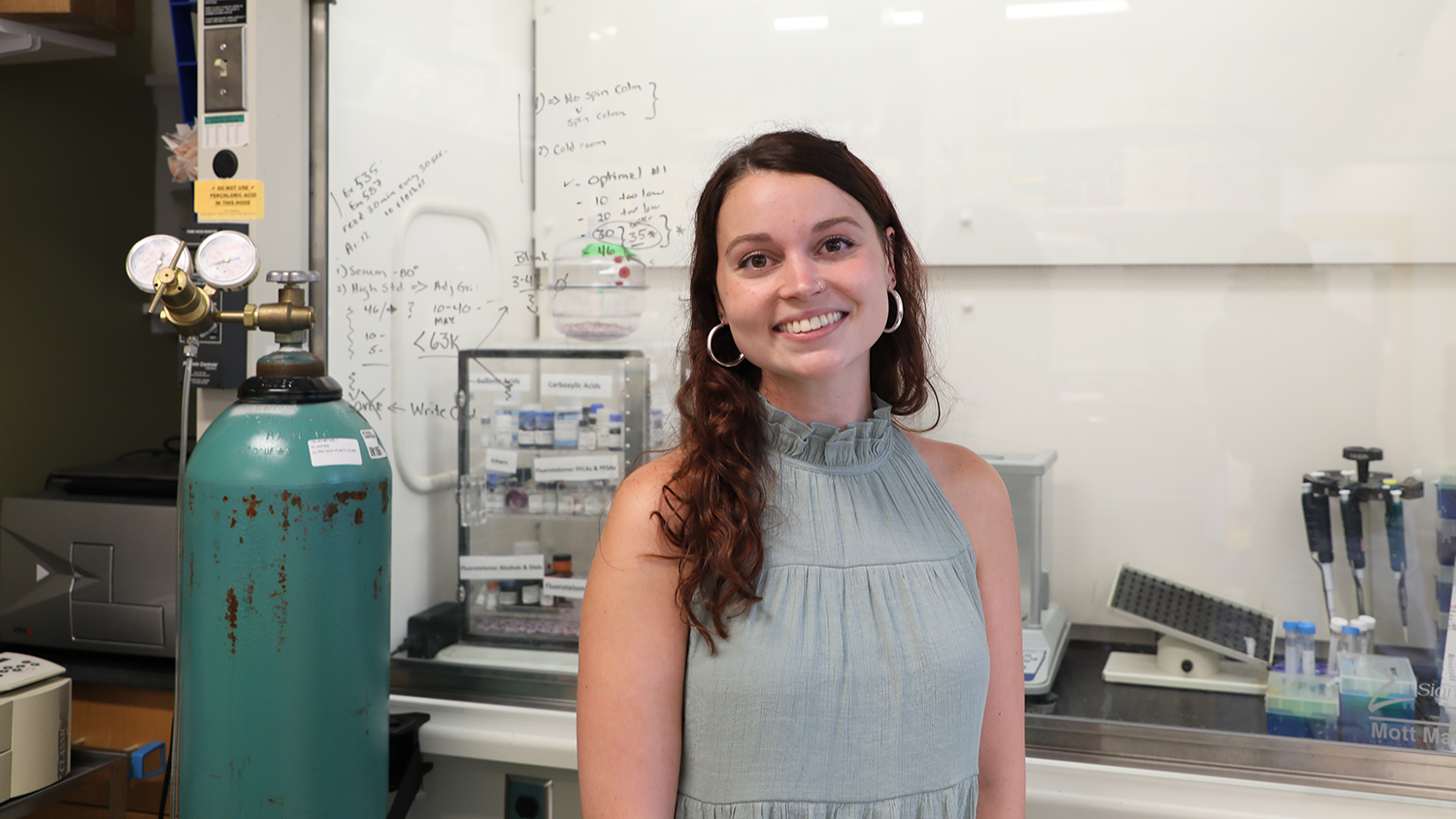As a graduate research fellow in the Theriot lab, fifth-year Ph.D. candidate Samantha Kisthardt studies the role of the gut microbiome in preventing C. difficile infection. After completing her undergraduate degree here at NC State, Samantha knew that she wanted to continue working in research. Having worked as a research technician at NC State and seeing its culture of interdisciplinary collaboration, she knew that doing a Ph.D. at NC State would put her at the cutting edge of science. Reflecting on her journey through the Ph.D. program, Samantha is confident that her doctoral training will provide a solid foundation to continue making advances in microbiology.
Tell us about your journey to graduate school and what led you to NC State.
I started at NC State in 2017 as an undergraduate and completed my Bachelor’s degree in Microbiology at NC State in 2020. During undergrad I thought I wanted to go into dentistry, but decided that I should get involved in undergraduate research just to try it out and get some experience. I worked as an undergraduate researcher in a produce safety lab within the Department of Food, Bioprocessing, and Nutrition Science and fell in love with research. In the Spring of 2020, I was getting ready to graduate and COVID forced my last semester to be completely remote. I had just started a position as an extern at a dental office, but realized during lockdown that I didn’t want to go into dentistry. I realized I couldn’t see myself in dental school, or working as a dentist, but I could see myself going into research. After weighing my options with my advisor, Dr. Frank Scholle, I decided I wanted to take a gap year and work in a research lab to see if I was truly passionate about science. I was offered a position at his start-up company, PhotoCide Protection, which focused on making antiviral and antibacterial fabric spray coatings. As a technician, I became passionate about asking my own questions and chasing down how things work. I decided to apply to graduate school in the Fall of 2020 and knew that I wanted to stay at NC State because I had been exposed to many exciting research labs.
Tell us about your research and/or teaching experience.
My research focuses on how the gut microbiome can prevent C. difficile infection. C. difficile, commonly known as C. diff, is a bacterial pathogen that’s associated with antibiotic use and is prevalent in hospitals across the world. Antibiotics are really good at killing pathogens, but they also negatively affect beneficial bacteria in the gut. Loss of these bacteria can make a person susceptible to infection with C. diff, and can lead to a really nasty recurrence cycle because current treatments are mostly antibiotic-based. My project seeks to take a bottom-up approach and figure out how specific bacteria can interact with C. difficile and whether this can affect disease dynamics in a mouse model of infection. The big picture goal of my work is to identify important bacteria that we can use to rebuild resistance to C. difficile infection through next generation treatments like microbiota focused therapeutics.
How has the Graduate School and/or NC State helped you with your professional development?
I am very fortunate to have had many opportunities to communicate my research at local, state, national, and international meetings. My PI, Dr. Casey Theriot, has always encouraged me to apply for posters and talks at conferences and take the opportunity to practice speaking. I have been able to use the skills built through scientific communication coursework taken through the Genetics and Genomics Scholars and NIH Molecular Biotechnology Training Program (MBTP) here at NC State to become a better communicator and reach non-experts and experts alike. Having a strong training foundation through fellowship programs has allowed me to feel comfortable communicating in academic and industry settings. In 2024 I was able to intern at Pairwise, an agricultural biotechnology company in Durham, NC. I felt confident communicating in weekly team meetings and presentations because of the skills I learned as a student at NC State. I also was able to work in protein biochemistry, an area I am by no means an expert, because of the background I was able to build through unique courses focused on protein purification and characterization offered by the MBTP. Building a strong range of foundational skills has been very important to me since starting the PhD program, and the resources afforded to me by NC State have allowed me to develop as a scientist and communicator.
What advice do you have for new or current graduate students?
Try new things and don’t be afraid to fail the first time! Every new project will have a learning curve and it’s easy to feel like it’s a you problem if you keep on making the same mistake for several months, but it’s happened to everyone in grad school. It’s not about doing it perfectly the first time, but rather learning from your mistakes and being aware and honest with yourself. And that extends beyond your academics, too! Try new things and learn how you like to spend your time outside of school. Grad school can seem daunting because you hear horror stories about people working 24/7, but it’s so important to have a good work-life balance. The best advice I’ve ever read was from a high school classmate who was profiled by her vet school, and she said to try to spend an hour every day doing something for you. It isn’t always going to happen, but try to prioritize doing something you love, even if it’s reading a book for 15 minutes during an incubation. Grad school isn’t forever, so use this time to practice healthy habits for life after grad school. It might not fit the grad school is a grind narrative, but it’s so important to find a balance in everything you do!
What are your plans after graduation?
After I graduate I would like to find a role in industry early stage R&D or working for a state government agency. I want to stay hands-on in the lab for a few more years before transitioning to management, and while I don’t have a specific dream job, I have a dream outcome. I to be able to use the skills and expertise I’ve learned in graduate school to be able to communicate my work to a wide range of people. Whether it’s working on an interdisciplinary team at a pharmaceutical company and interfacing between two departments or communicating my research to inform policy at the state level, I want to be able to positively impact whichever team I’m on.
What does being an NC State graduate student mean to you?
Being an NC State graduate student means that I’m one small part in a larger machine of innovation. Through collaborations and support from the University community, I have been able to make so much progress and generate new results that have real world impacts. While this is exciting in terms of my specific field, it’s also exciting to know that none of this was possible without the culture we have here at NC State. It’s so easy to find an expert in anything here, and everyone is so willing to teach and collaborate. Graduate school can be isolating, being only one of a handful of people working on a specific task, but having a community willing to help and listen makes everything feel much closer. My work is important not only to me and my lab, but also to the University as a whole, as it is a product of the culture and training fostered at NC State.
Fun fact about yourself.
I can wiggle my ears!
- Categories:



